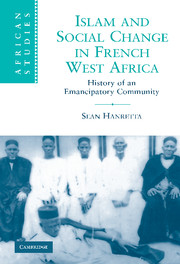Book contents
- Frontmatter
- Contents
- List of maps and figures
- Acknowledgments
- Note on orthographic conventions
- Abbreviations used in references
- Introduction
- Part One “The Suffering of Our Father”: Story and Context
- Part Two “I Will Prove to You That What I Say Is True”: Knowledge and Colonial Rule
- Part Three “What Did He Give You?”: Interpretation
- Conclusions
- Glossary
- Note on References
- Index
- Books in This Series
Conclusions
Published online by Cambridge University Press: 15 December 2009
- Frontmatter
- Contents
- List of maps and figures
- Acknowledgments
- Note on orthographic conventions
- Abbreviations used in references
- Introduction
- Part One “The Suffering of Our Father”: Story and Context
- Part Two “I Will Prove to You That What I Say Is True”: Knowledge and Colonial Rule
- Part Three “What Did He Give You?”: Interpretation
- Conclusions
- Glossary
- Note on References
- Index
- Books in This Series
Summary
GIFTS OF THE PAST
Achille Mbembe has insisted that it is impossible to understand the “logics of the disordering [la mise en désordre] of colonialism in Africa” simply by analyzing the structures of colonial rule and then identifying instances of African resistance in relation to them. What is needed instead, he argues, is an examination of acts of “indiscipline and insubmission” in all their “misfires,” “equivocations,” and “slippages,” their “very incoherent plurality.” In this Mbembe echoes Gayatri Spivak's famous claim that the “colonized subaltern subject” is “irretrievably heterogeneous.” But Mbembe also distinguishes the process of identifying “interprétations indigènes” – in the sense of locating the procedures of insubmission and the reasons for their plurality within debates over authority, equality, and belonging and the political articulation of those debates – from a “substantivist drifting that seeks to explain everything in reference to a collective mentality, disconnected from contexts, time and agents.” Mbembe thus leaves open a possibility that Spivak forecloses: writing a meaningful history of insubmission.
To what extent is the history of Yacouba Sylla and his followers one of insubmission? Aside from its rough beginnings, the community can be seen from 1934 on as moving in close sympathy with the major trends in West African history, establishing good relations with the colonial state, finding a home in nationalist movements, and surviving the rougher waters of postcolonial Côte d'Ivoire with fewer losses than might have been expected. Only on the ideational level does radicalism seem to have persisted.
- Type
- Chapter
- Information
- Islam and Social Change in French West AfricaHistory of an Emancipatory Community, pp. 275 - 288Publisher: Cambridge University PressPrint publication year: 2009

